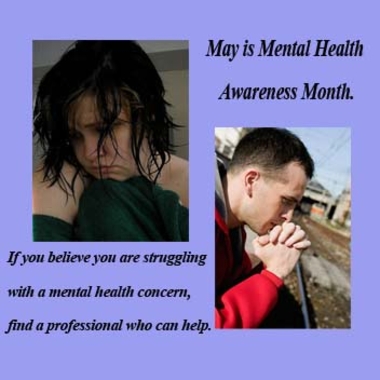Stigma no more

OPINION: Mikel Laporte
Mental Health Columnist
I live with severe depression and anxiety. For years I denied that fact to myself and others. As an only child, I learned the art of pretending.
This skill both benefited and harmed me as someone living with mental illness. It provided me enough skill to convince others I was fine, preventing me from getting the help I needed.
Coming out about having a mental illness is like coming out as gay. In both situations, I had concerns about the associated stigma. Both brought the same feelings of fear, shame, guilt, and the potential loss of friends and family.
Today, I view both less as coming out of the closet, and instead an invitation to see me as my authentic self. Some people accept the invitation into my world. Others refuse. I cannot make that choice for them; what I can do is be the most gracious host possible if they do accept the invitation.
Discussing my mental health issues helps others better understand me. It helps others understand why I sometimes cancel our plans last minute. It also explains why I may decline an invitation to a social gathering, or why I may appear moody or angry for no reason. When people learn I have anxiety and depression they often ask how they will know I am getting worse.
While symptoms vary by individual, there are some standard tells. We talk about my specific tells, and when they notice my behaviors change, they often confront me.
It took me years to face the fact that I had a mental illness. It took even longer for me to do something about it. I had to overcome my own negative beliefs about therapy and antidepressants. I also had to overcome my fear of mental health professionals.
Let’s face it; the field of psychology has not always been kind to our community. It is different today. Any reputable mental health worker understands that being LGBTQ+ does not lead to mental illness. They also understand that the minority stress faced by our community can aggravate any mental health issues one might have.
Recently my anxiety and depression have gotten worse. These exacerbations of my illness are a reminder that I must remain ever vigilant of my symptoms and take action when changes occur. Likely this means either another change in medication or a change in the dosage of what I currently take. My providers and I will make that determination together. While frustrating, I know the alternative of ignoring the facts is life-threatening.
May is Mental Health Awareness month. If you believe you are struggling with a mental health concern, find a professional who can help. Research shows that a combination of medication and talk therapy provides the best outcomes.
Find a doctor who will listen to you and find a therapist who is more than “gay-friendly.” Search for a therapist who is well informed about the nuances of life as a member of the LGBTQ+ community. There are many resources available, and several of them are low cost or no cost options.
If you see a friend struggling with what you think is mental illness, talk to them. Ask them how they are doing. If your suspicions are correct, encourage them to seek the help they need to get better. Let’s end the stigma of mental illness and help people get mentally healthy.
Copyright The Gayly – May 1, 2019 @ 7:05 a.m. CDT.





